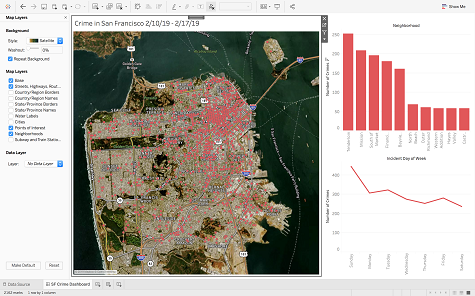Tableau Software has announced it is making available an update to its namesake data visualization and analytics software that extends support for geospatial data.
Ryan McShane, senior manager for product marketing for Tableau, says the Tableau 2019.2 update addresses the needs of organizations that need to analyze location-based data alongside all the other data types Tableau already supports. That geospatial capability is enabled by a vector maps engine created by Mapbox that Tableau is now incorporating within its analytics application.
Other new capabilities include parameter actions for analyzing data at specific points in time, customizable tooltips in web authoring, a personalized Tableau Server homepage, improved dashboard building tools, and updates to AskData, the natural language engine developed by Tableau.
“It’s all about accelerating the time to insight,” says McShane.
Of course, the proverbial “Holy Grail” of accelerated insights will be the day when analytics applications are able to surface insights without waiting to be asked. In the meantime, natural language tools are making analytics more accessible with each passing release. The days when business users required an analytics specialist to define the parameters of every query are rapidly coming to an end.
In the meantime, there’s a direct correlation between the amount of data that can be stored in memory and the relevancy of the analytics being surfaced. As an early pioneer of in-memory analytics, Tableau has been at the forefront of that trend. By adding support for geospatial data, Tableau is now extending the reach of its platform into location-based data that previously would have required organizations to acquire another application to analyze.
It’s unclear to what degree the ability to analyze location-based data will either replace or, at least inhibit, adoption of other analytics applications among organizations that have already embraced Tableau. But at the very least, the gap in understanding between when and where any given event might have occurred is increasingly being narrowed.



